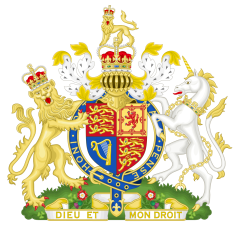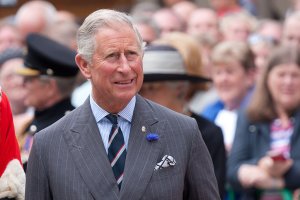The British monarch is required to take on the role of Supreme Governor of the Church of England.
No head of state should promote an official religious preference.
Let's end the ties between our head of state and the Church.
Our head of state, the monarch, holds the title 'Defender of the Faith and Supreme Governor of the Church of England'.
This means the monarch must also be a full member of the Church of England – an anachronism in one of the least religious and most religiously diverse countries in the world.
Despite dwindling congregations, the monarch must also take an oath to maintain the Church of England and to preserve the Church of Scotland.
The position of head of state should not be reserved for members of one particular faith. Most countries allow citizens of any religious affiliation to be head of state. Everyone should be free to follow any personal faith, or none. The monarch is the only person in the country not free to have whatever personal faith they wish or have none at all.
Only 34% of the public think future British monarchs should be required to be members of the Church of England and keep the title of supreme governor of the Church of England.
The ties between the Church and the monarchy are typified by the coronation. The UK is the only democracy to have such an explicitly Christian ceremony for its head of state's accession, with the monarch pledging to maintain the "Laws of God" during an Anglican coronation ceremony in Westminster Abbey. The Church has a key role in the coronation of a new monarch, who is crowned and anointed by the Archbishop of Canterbury. The coronation also has sectarian anti-Catholic overtones. Catholics are explicitly excluded from becoming monarch.
The monarch's declaration of preferential status for one denomination of one religion renders everyone who is not of that religion less than full citizens.
If British monarchs are to continue acting as head of state, they should relinquish the role of head of the Church in order to end the unfair privilege afforded to the Church of England, and show equal regard for citizens of all faiths and none.
Take Action!
1. Write to your MP
While our Head of State is also the head of the established church, we cannot have church-state separation. Ask your MP to support the separation of church and state.
2. Share your story
Tell us why you support this campaign, and how you are personally affected by the issue. You can also let us know if you would like assistance with a particular issue.
3. Join the National Secular Society
Become a member of the National Secular Society today! Together, we can separate religion and state for greater freedom and fairness.
Latest updates
Princess removed from line of succession for being Catholic
Posted: Tue, 2 Oct 2018 16:35
The National Secular Society has said a Catholic princess's removal from the line of succession to the throne is "a reminder that Britain needs a secular head of state".
Princess Alexandra of Hanover, a member of the royal family of Monaco, has lost her claim to succeed the queen after deciding to become a Catholic, according to reports in recent days.
Catholics have been barred from the English throne since the Act of Settlement of 1701. The act was passed amid Protestant concern at the fact the son of the Catholic James II was next in line to the throne.
The Succession to the Crown Act 2013 explicitly says Catholics are "deemed to be dead" in terms of the succession. The act changed the succession rules but only allowed those who marry Catholics to assume the throne, rather than Catholics themselves.
The monarch is the supreme governor of the Church of England and is legally required to "join in communion" with the C of E.
NSS spokesperson Chris Sloggett called the decision on Princess Alexandra "a reminder of the unjustifiable ties between the royal family and the Church of England and a reminder that Britain needs a secular head of state".
"The requirement for the head of state to lead the Church of England is divisive and exclusionary. It reinforces the highly dubious notion that the C of E is the moral leadership of Britain – a notion shown to be wrong by figures on religious affiliation and the church's awful conduct on issues such as child abuse.
"In this case it was highly unlikely that Alexandra would ever have become queen of England. But the same principle would have applied if she had been next in line to the throne.
"Religion should be a private matter. Nobody should be barred from leading our country on the grounds of their religious orientation or lack of it."
Last year the NSS's report Separating Church and State: The Case for Disestablishment made the case for severing the constitutional ties between the monarchy and the Church of England. The report also said Prince Charles's accession could offer a "particularly opportune moment" to make the case for the disestablishment of the C of E.
It is unclear exactly where in the line of succession Alexandra stood. She was not named on the website of the British monarchy, which lists the first 17 people in line. She remains 12th in line to the throne of Monaco.
The last person to be excluded from the line of succession for being a Catholic was Lord Nicholas Windsor, George V's grandson, who was received into the Catholic Church in 2001.
Earlier this year Meghan Markle underwent baptism and confirmation in to the Church of England before her marriage to Prince Harry, reportedly to please the queen.
Earlier this year two reports from University College London's constitution unit called for the role of Anglicanism to be diluted in the next coronation. A monarch is currently required to swear three religious oaths on assuming the throne.
Image: Royal coat of arms of the United Kingdom, via Wikimedia Commons, © Sodacan [CC BY-SA 3.0]
Dilute Anglican presence in next coronation, says UCL report
Posted: Wed, 23 May 2018 13:28
Religious oaths should be revised or scrapped from the UK's next coronation service and a civil ceremony should be held alongside the traditional Anglican one, a major think tank has said.
Two reports by University College London (UCL)'s Constitution Unit say Prince Charles should make secular declarations in place of three traditional oaths to uphold Christianity when he becomes king.
The first report, Swearing in the New King, recommends a "radical reformulation" of the oaths. The new oaths would focus on the United Kingdom, the constitution and its laws and the monarch's duty to the people.
The monarch is currently required to swear the Scottish oath, to uphold the Presbyterian Church of Scotland; the accession declaration oath, to be a true and faithful Protestant; and the coronation oath, which includes promising to uphold the C of E's privileges.
The report says these oaths, which originally date from 1688 to 1707, "reflect a period of history that is now over".
The second report, Inaugurating a New Reign, suggests adding a civil ceremony in Westminster Hall and involving other denominations and faiths in the traditional Anglican ceremony. It adds that there is "a case" for having the civil ceremony before the Anglican one, to "stress the inclusiveness of the UK state".
It highlights the significant decline in support for the Church of England and states that "however welcoming to other faiths, a wholly Anglican coronation service is no longer capable of reflecting or responding to modern British society".
"A secular ceremony could celebrate the nation's diversity in ways that an Anglican service cannot."
In December the National Secular Society said Charles's accession would be a "particularly opportune moment" to press the benefits of disestablishing the Church of England in its Separating Church and State report.
In response to the UCL reports NSS chief executive Stephen Evans said a change in the head of state would represent "an ideal opportunity" to begin severing the ties between religion and the state.
"One of the most significant changes Britain has seen since the last coronation is its shift away from Christianity. Today the UK is characterised by its religious diversity and has, for the first time, a non-religious majority.
"The monarch's coronation reinforces the privileged position of the Church of England, and this should now be called into question. The UK's next head of state should not promote an official religious preference, far less be under a formal obligation to sustain one.
"The time is right to cut the ties between religion and state, and the next coronation will provide the ideal opportunity to begin that process."
Swearing in the King stresses the changes in religious belief in the UK since 1953, when the current queen was sworn in.
"The nature of religious belief in the UK has greatly changed. Since the last coronation, processes of secularisation and pluralisation of belief have occurred with the result that surveys show that in Great Britain half the population now has no religious affiliation whilst the number belonging to non-Christian religions has grown to six per cent."
Dr Bob Morris, one of the reports' authors, said: "In 1953 the UK was then the head of a global colonial empire, with armed forces five times their present size, capable of mounting a procession of over 40,000 troops with attendant military bands.
"The UK now is a much more diverse, pluralist and secular society. The coronation needs to reflect that greater diversity: it will define not just the monarchy, but the whole nation whom the monarch is to represent."
In 2015 Charles said he would retain the monarch's traditional title as 'defender of the faith' as king, whilst "ensuring that other people's faiths can also be practised".
Image: © Dan Marsh, via Wikimedia Commons [CC BY-SA 2.0]
See also: Will Anglicanism reign supreme at the next coronation?




